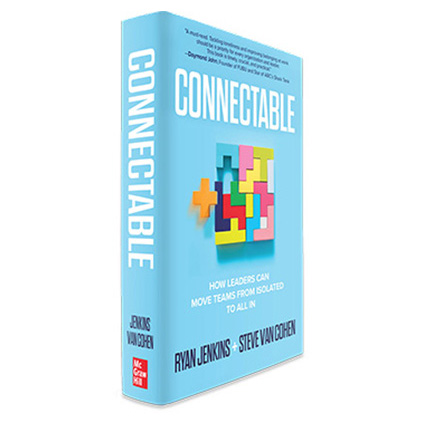In the research I am doing for my book on introvert-friendly work cultures, open spaces are not getting high marks from introverts.
Although they find ways to adapt, they push against the prevailing idea that open offices are the ideal. There don’t seem to be many attempts to ask introverted employees about how to make these spaces work for them and their challenges fall into three key categories: communication, lack of privacy, and distractions.
Communication
Aside from a lower cost per foot, one stated goal of open offices is to inspire communication and collective creativity, like bees in a hive, as one author wrote. Unfortunately, the research does not always support this claim. In fact, a widely quoted research study from researchers at Harvard found that open-office layouts actually cut face-to-face conversations by 70% and that email and texting replaced these conversations. People withdrew from office mates. They also noticed losses in productivity after open office designs were implemented. The caveat is that the sample size was small.
One company told me that to combat this and encourage communication, they decided to place people in their large HR department next to each other using their last names in alphabetical order as opposed to by function or team. This backfired and the employees found that not being seated near their intact team was very inefficient and frustrating.
Lack of Privacy
Introverts value privacy. They don’t necessarily want to make small talk with extroverted office mates who stop by. Private space is also necessary for thinking. One survey by William Belk found that 58% of employees reported needing more private space for problem-solving.
Introverts like to function under the radar and with leaders of the company standing or sitting next to them, there is little room for handling issues privately without the fear of someone looking over their shoulders. One author questioned whether individuals “might be willing to take creative risks if it means everyone in the office sees their experiments or failures.”
Distractions
Time and time again, the introverts who responded to our survey emphasized how important a quiet environment is to their ability to function.
“We are in cubicles, and sound/voices travel for three to four cubicles. It is very disruptive.”
“Cube walls don’t cut it. We still hear all your extrovert conversations and lose track of what we are doing.
Introverts do not like over-stimulation from the external environment. In a busy open space organization, the physical proximity of people, noise, and light can take them off their game. Conversely, noise and light management can be an effective solution to allowing introverts that quiet they need. For example, one survey respondent found their own way of signaling with light their need for quiet time at their workplace.
“My workplace allows me to use lamps instead of the overhead lights. I don’t always use them, but my co-workers know when it’s a “lamp day” it means I’m pretty overwhelmed and they are considerate.”
How to Create Introvert-Friendly Office Spaces
In an advice column to introverts seeking jobs, the employer review website GlassDoor.com recommended they only look at workplaces where they’d have a door. Their rationale was that introverts will perform better in solitude. While this is true, building predominantly private offices is not a viable option for most companies in today’s changing workspace. And for companies, redoing their office spaces is not feasible. So, what options should introverted employees ask about when sizing up a potential workplace? And more importantly, what are some viable solutions for companies to ensure their current and future introverted employees are set up for success?
When attracting talent and planning ideal office spaces, leaders should look around their company, consider the other factors that play into effective workplace design, and ask introverts what they need to be productive. That would be a good start.
Give us your suggestions
We are still collecting data on best practices so please complete this short survey to tell us your thoughts about introvert-friendly workplaces. Thanks!





